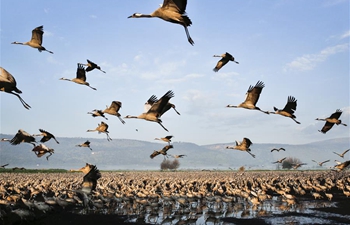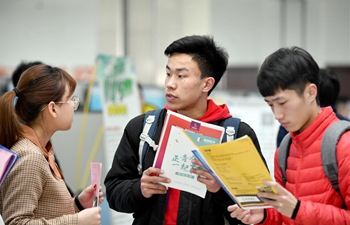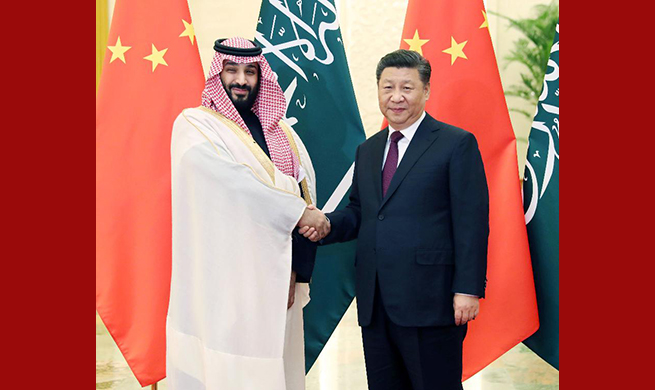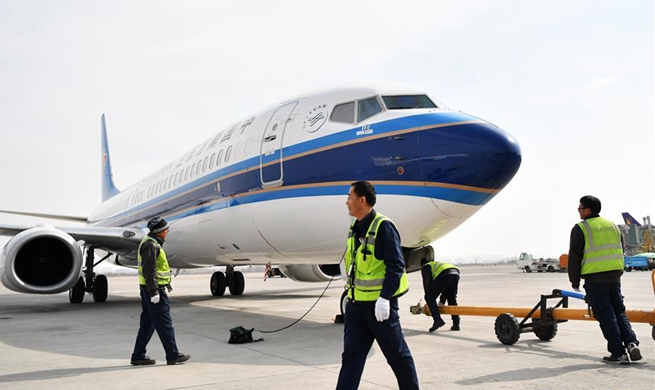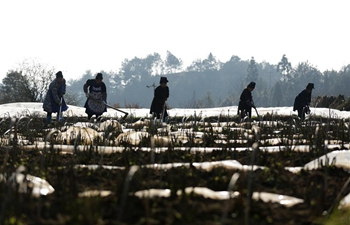BEIJING, Feb. 23 (Xinhua) -- The following are the key moves taken by China's policymakers in the past week to enhance China's economic strength and sustainability, which will have different levels of impact on the market.
--FIRST CENTRAL BANK BILLS SWAP
The People's Bank of China announced the operation of the country's first central bank bills swap (CBS) Wednesday, which is designed to improve the liquidity of perpetual bonds, a tool to replenish capital for commercial banks. The move marks the latest effort of the central bank to support the real economy.
The PBOC also stressed that the CBS is not quantitative easing, since it neither increases nor decreases in the monetary base, and the bank does not hold the ownership of perpetual bonds or take credit risks.
--"NO. 1 CENTRAL DOCUMENT" FOCUSES ON RURAL DEVELOPMENT
The Communist Party of China (CPC) Central Committee and the State Council jointly released their first policy document for this year, prioritizing development of agriculture and rural areas for the 16th consecutive year.
Better known as the "No. 1 central document," the document said China will move to optimize agricultural structure, boost production of green agricultural products or those in short supply and roll out plans to increase soybean planting and support the dairy industry.
China will also step up breakthroughs in key agricultural core technologies and promote independent innovation, enhance agricultural cooperation with countries along the Belt and Road, actively expand imports of agricultural products in short supply at home, diversify importing channels and foster the development of multinational agricultural corporations.
--GREATER BAY AREA UNDER SPOTLIGHT
China unveiled a master plan Monday on the development of the Guangdong-Hong Kong-Macao Greater Bay area, which contributes around 12 percent of the national GDP with less than 5 percent of the country's total population.
Under the plan, the area will evolve into a globally influential international innovation and technology hub, an important support pillar for the Belt and Road Initiative, a showcase for in-depth regional cooperation and a quality living circle for life, work and travel.
Multinationals will be encouraged to build headquarters there, as well as set up research and development centers, labs and innovation platforms.
According to the plan, investment will be facilitated and trade will be liberalized, and the flow of people and goods will be easier.
--STATE COUNCIL EXECUTIVE MEETING
China's State Council decided Wednesday to roll out reforms on its project approval system nationwide on pilot schemes and halve the time for project approval to within 120 working days during the first half of this year.
Opinions from enterprises and industry associations or chambers of commerce will be solicited to optimize the formulation and implementation of relevant regulations.
The meeting also decided that China will promote the development of the household service industry, a significant move to address the trend of rapid aging and facilitate implementation of the two-child policy, which will help boost consumption and employment.




